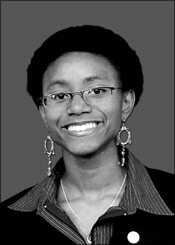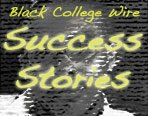| Uproar at Howard Over Faculty Senate Elections |  |
 |
 |
| By Jessica Lewis -- Black College Wire | |
|
The Howard University Faculty Senate election results are being called into question amid allegations that the balloting process violated the Senate constitution. The election, held April 8, is the topic of heavy debate among faculty members: the ones denied the opportunity to vote and turned away at the door, and the ones who had the opportunity to cast their ballots. According to the Senate constitution, Article 1, Sec. F, the members of the Senate consists of all tenured and non-tenured faculty members serving in full-time faculty appointments or positions. This includes department chairpersons who have been appointed with the advice and consent of the faculty of their department. Both groups were denied votes. One such professor, Ronald Beverly, said that he went to the first voting location at the Inabel Burns Lindsay School of Social Work only to be told that his name was not on the list and he could not vote. Beverly said he was turned away at the door because his position is only temporary. According to Beverly, he was told he had to be a tenured professor to vote because that is the way it had always been done. In a conference call placed Wednesday, April 15, professor James Craigen said the elections are designed “to intimidate younger faculty and to impose procedures that minimize new voices and procedures. It’s designed to maintain control. This is just the latest example of that process.” He said that the last 12 years have been a power grab between the same people. The same people rotate positions. 
howard.edu
Undergrad trustee Victoria Kirby
Beverly said that although he was able to vote due to the guidance of undergraduate faculty trustee Starmanda Bullock he wonders how many people were simply turned away. The memorandum states, “Non-tenured, non-tenure-track full-time faculty members were denied a provisional ballot… were intimidated and demeaned and Faculty Senate officers were dismissive of their verbal petition to vote for 3 ½ hours.” Another professor, Sonya Smith, said that when her slate decided to run, they were told from the beginning that candidates are usually “chosen and groomed through the ranks.” Smith was the only member of the ticket to win the election. Toldson’s name was not included on the ballot. According to Ura Jeanne Bailey, a member of COC, the exclusion of Toldson from the ballot was unconstitutional and meetings proposed by the COC to address the issue were ignored by the COC chair, Carolyn Broome. Bailey said Broome unilaterally decided to send the ballots in an “autocratic process to engineer results to favor one candidate.” Broome was unavailable for comment at the time of press. During the conference call, Bailey said Broome was the chief campaigner for the other team. The other slate consisted of candidate for president Eric Walters, candidate for vice-chair George Middendorf, candidate for secretary Moses Garuba and candidate for undergraduate faculty trustee Richard Wright. Beverly said lessons should have been learned from the 2000 national elections in the form of “hanging chads.” According to the memorandum dated April 17, 2009, 20 percent of the undergraduate faculty trustee ballots were left blank due to the design of the ballot. In addition, it states that the members of COC were not consulted about the design of the ballot. “We had an election with enough irregularities to call the results into question,” Harkless said. According to Harkless, there is a chance the newly elected members will not be recognized and represent an illegitimate voice of the faculty. He said the simplest fix is to have electronic voting. Bullock said that to her knowledge, ballots were still being counted. Beverly said that given how he was treated, the elections should be redone. Jessica Lewis writes for The Hilltop, the Howard University student newspaper, which originally published a version of this article. |
|
| Posted Apr. 24, 2009 |
| < Prev | Next > |
|---|



